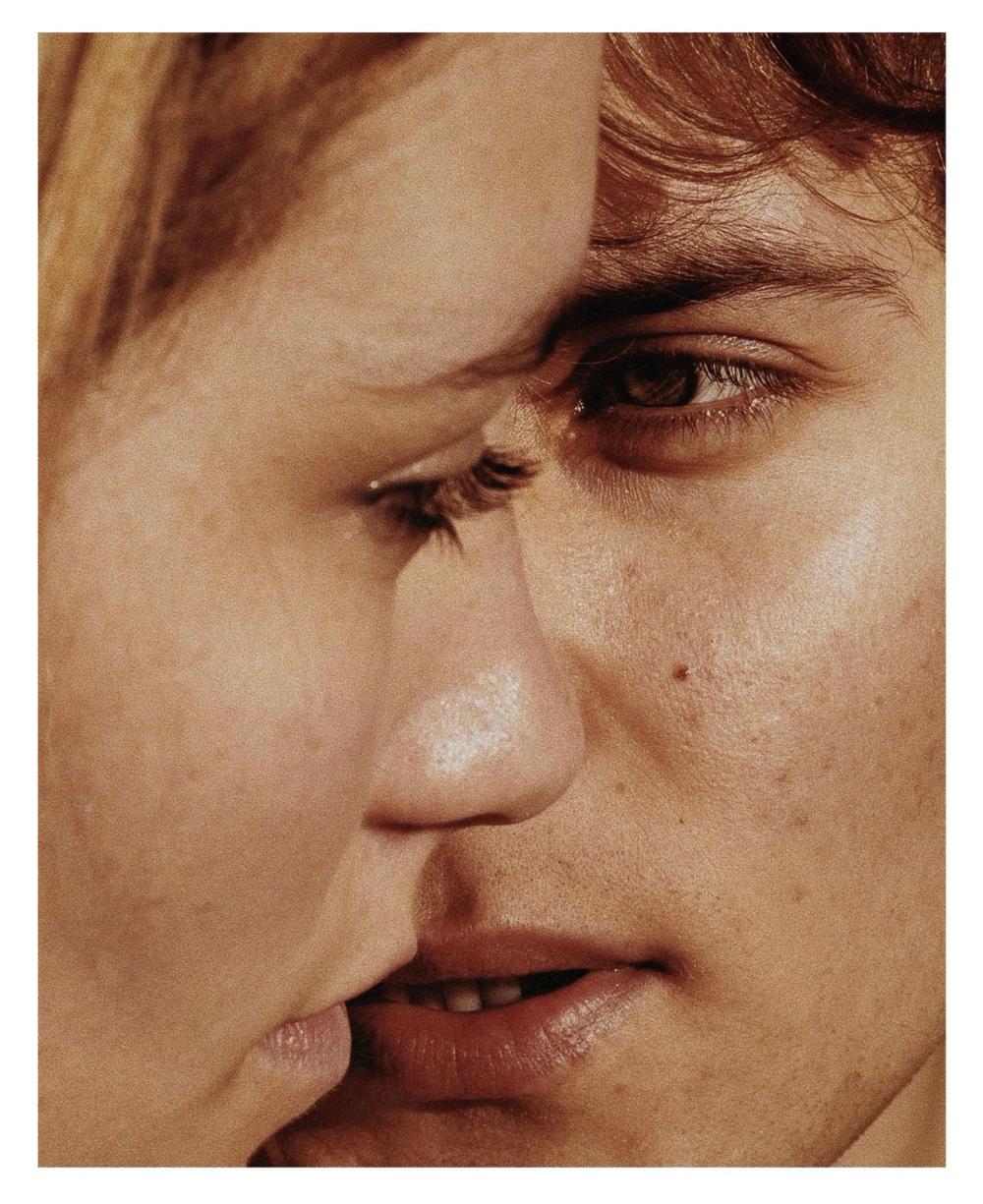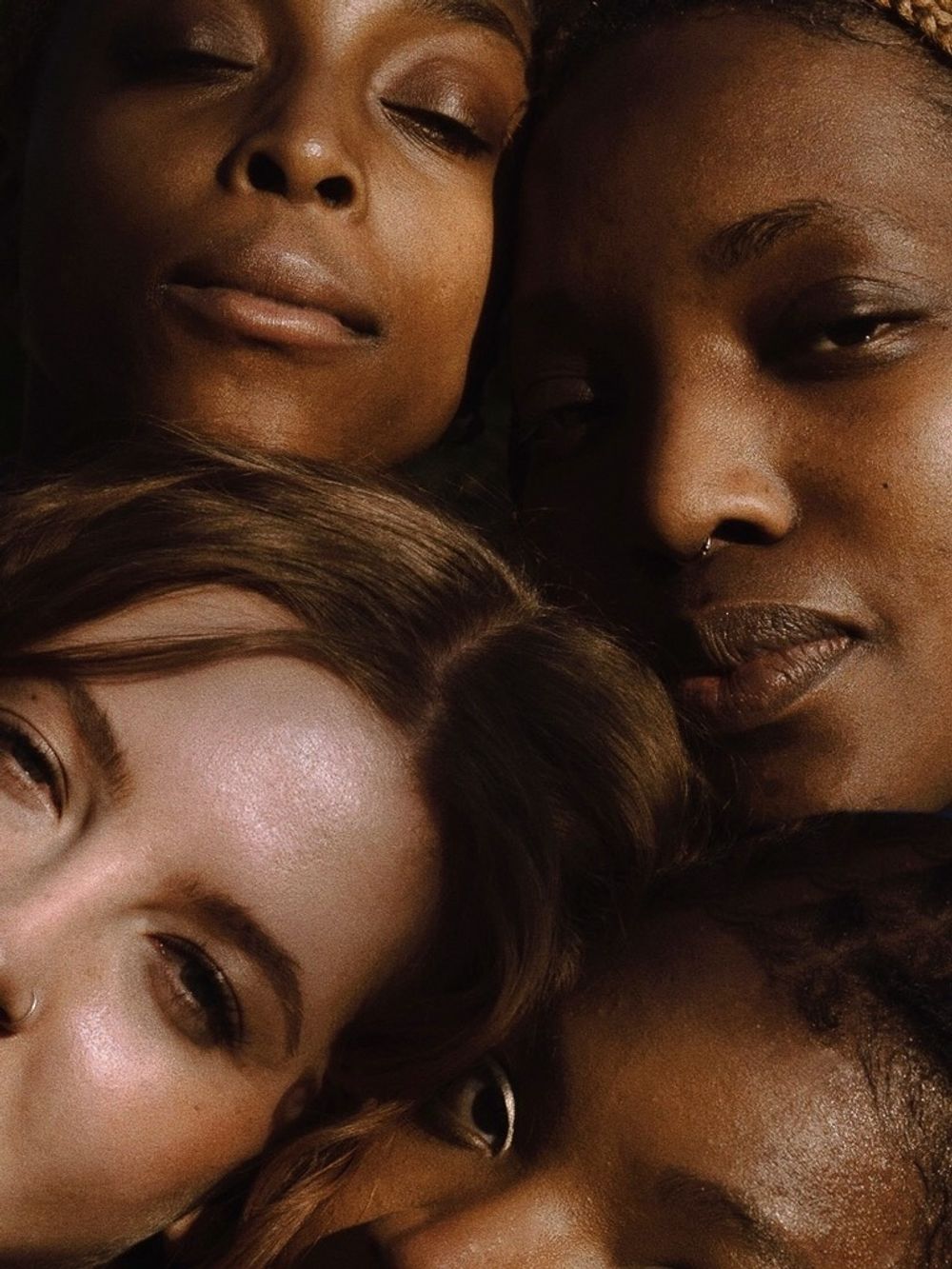Warning: This piece contains descriptions of sexual assault.
When the call came to shoot the explosive "I'm Asking For It" campaign pushing Parliament for an affirmative consent law, we snapped to attention. It hit close to home. We had only just published our own piece on consent a few weeks before in the tailwind of the Russell Brand accusations, and weeks later, my dear friend was preparing to take the stand in a sexual assault case after waking in the middle of the night with her mate's boyfriend's hands down her pants, his fingers inside her, twice. Sorry, do those words make you uncomfortable? Good. That discomfort is a fraction of what so many women have been made to feel far too often - violated, silenced, and scared in spaces that should bring joy.
My friend's trauma echoed my own chilling brush with violation - and the luck of an unlikely escape. At 25, I had been invited to a private industry party, and after just 1 drink, I blacked out only to wake up the next morning having no recollection of the night before. My roommate at the time recounted the evening and told me that they had found me incoherent, thrown over the shoulders of a strange man who was adamant on taking me home. A scuffle ensued. Blows were thrown. And ultimately, I was rescued safely. But in those blank hours, anything could have swallowed my naive trust. My gratitude knows no words for the friends who saved me. But those saved stand as minorities.
The unspeakable happens every day. WHO indicates that globally, 1 in 3 women have been subjected to either physical and/or sexual intimate partner violence or non-partner sexual violence in their lifetime.
In England and Wales alone from 2015-2020, only 1.6% of reported rape cases resulted in prosecution. Not to mention all the cases never even brought to light.
Behind each of these cold stats lies an untold story - trauma stored - a feeling of shame and disgust that rarely goes away when left unresolved.
The victim-blaming mentality still dominates. 1 in 5 think that "no" can mean "yes" when it comes to sex. And 30% of British women state that intoxication defies consent boundaries regardless of mental capacity. I experienced that very sentiment over the weekend while at a women's retreat. An American woman, now a mother and a parenting coach, shared her own experience in college. She was known as a "wild girl" with a troubled childhood and a love of partying. She got drunk with some college athletes and was admittedly acting "very flirty." As she got more and more wasted as the evening progressed, things went blurry and she woke up to both boys having sex with her. When she realised what was happening, she started crying, an emotion she couldn't resist. Still, she takes the blame - "I got so drunk and should never have put myself there. They must have been wasted too." She argued equal impairment.
Her self-blame cut deep - evidence perhaps of our conditioned role as consent gatekeepers. The current victim-labelling machine offers two options - broken or bitter.
Females are such powerful, luminous beings, yet our bodies remain up for grabs by so many cultures. We hide our skin and hair to avoid man's temptation. Girls often feel disconnected from their own bodies, seen as alluring objects to be claimed.
Our modern society celebrates women's captivating beauty yet still condemns them for possessing it. Attributes praised are also weaponised, making self-expression a minefield. Though the UK celebrates the female form and the right to show it off, the reality of sexual assault tells a different story.
According to a 2022 government census, 16.6% of adults aged 16 years and over (7.9 million) have experienced sexual assault (including attempts) since the age of 16 years. Within this, a shocking 1.9 million individuals were victims of rape (7.7% women and 0.2% men).

Shot by Anais Stupka
We can't ignore the fact that many of these situations are complicated by heavy inebriation on both sides. While consent violations are never excusable, rallying solely around women who get drunk, have sex, then change their mind the next morning risks oversimplifying a multi-layered issue.
Studies show that approximately half of all sexual assaults involve alcohol consumption by the perpetrator, victim, or both. People drinking heavily and becoming amorous is perhaps another major societal issue to address. We hide behind liquor to stifle inhibitions and mask social awkwardness. Hookup culture often celebrates drunken escapades and brushes regrets under the table.
While women shoulder the heaviest burden, no gender is immune to consent violations. Non-binary people, trans individuals, and men also navigate a culture that normalises boundary-crossing and victim-blaming. Narrow stereotypes of masculinity and fear of stigma often stifle male survivors from coming forward. We must protect all genders and uplift every voice.
While scouring through CPS online, searching for statistics and insights, I came across this poignant quote: "While it is encouraging to see some progress in the public's understanding of consent and the reality of rape, it's hugely concerning to see how attitudes towards women's credibility remain deeply rooted across society, with so few correctly identifying that women rarely make up rape allegations." This statement transported me back to the personal experiences I shared at the beginning of this article. It served as a stark reminder that the most terrifying aspect of many cases isn't necessarily the incident itself, but rather the paralysing fear girls face in coming forward and being accused of lying.
My friend, who was set to take the stand against her mate's boyfriend, confided in me that her greatest fear was that no one would believe her. She worried that because of her appearance and demeanour, her credibility would be questioned. This heartbreaking revelation underscores the pervasive scepticism and victim-blaming that survivors so often encounter when they find the courage to speak their truth.
This realisation is a testament to how easily society dismisses and normalises the violation of women's bodies, particularly when alcohol is involved. The automatic assumption is often that the woman must have been irresponsible, that she put herself in that situation, and that she is ultimately to blame for any consequences that follow.
When women are made to question their own experiences and fear the judgement of others, they are less likely to come forward. Progress requires confronting some cultural norms and instilling affirmative consent practices as second nature. Yes means Yes. And No means No.
So, what can we do? This petition is a start.
Beyond that, we need comprehensive consent education. From an early age, we must teach respect for bodily autonomy and the importance of clear, enthusiastic consent. This education should be reinforced throughout our lives, in our homes, schools, and communities.
We need more men to step up as allies, to speak out against sexual violence, and to hold each other accountable. By actively promoting a culture of respect and consent, men can help create a safer world for everyone.
We need to address the toxic culture of substance abuse that often facilitates assault. While the responsibility always lies with the perpetrator, we need to have honest conversations about the ways in which alcohol and drugs can impair judgement and the ability to give informed consent.
We need to break the stigma surrounding conversations about sex. By normalising open discussions, we can create a society where everyone feels empowered to speak up, to set boundaries, and to seek help when needed.
But for now, this petition is a powerful start. It sends a clear message to Parliament that the current laws are insufficient and that we need change now.
I'm asking for it. Are you?
THAT WAS 'HER SAY' , NOW WHAT'S YOURS?
Join in on the conversation...

Shot by Anais Stupka
SIGN PETITION HERE.
Special thanks to Right to Equality, CPB London, Emily Atack, Anais Stupka and every brave participant and team member.
Love A&M @ AMP
- Rape Crisis England & Wales
- Website: https://rapecrisis.org.uk/
- National Telephone Helpline: 0808 802 9999 (12-2.30pm and 7-9.30pm every day)
- The Survivors Trust
- Website: https://www.thesurvivorstrust.org/
- Email: info@thesurvivorstrust.org
- NHS - Help after rape and sexual assault
- Victim Support
- Website: https://www.victimsupport.org.uk/crime-info/types-crime/rape-and-sexual-assault
- Support line: 08 08 16 89 111
- Safeline
- Website: https://www.safeline.org.uk/
- National Male Survivor Helpline: 0808 800 5005
- Young People's Helpline: 0808 800 5007
- Survivors UK (for male survivors)
- Website: https://www.survivorsuk.org/
- Chat helpline available on the website
- National Domestic Abuse Helpline
- Website: https://www.nationaldahelpline.org.uk/
- Helpline: 0808 2000 247 (24 hours)

